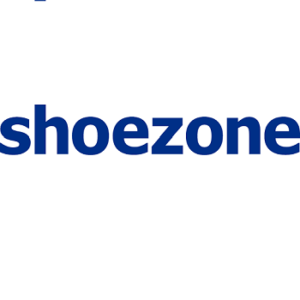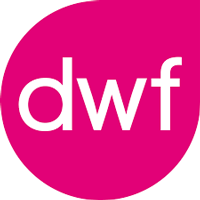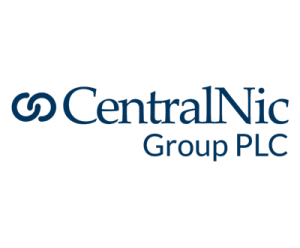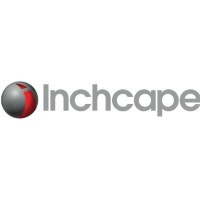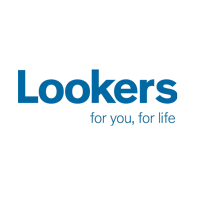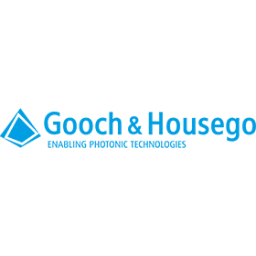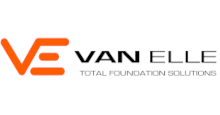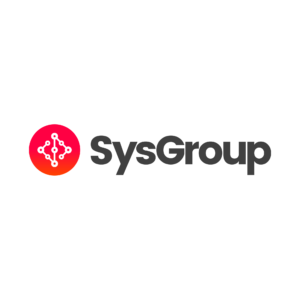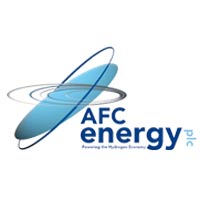Vertu Motors plc (LON:VTU), the UK automotive retailer with a network of 159 sales and aftersales outlets, has announced the following update with regards to the five-month period to 31 January 2022 ahead of its preliminary results for the year ended 28 February 2022 to be announced on 11 May 2022.
Robert Forrester, Chief Executive of Vertu Motors said:
“I am pleased to report that the Board now expects the trading result for the year ended 28 February 2022, at an adjusted1 profit before tax level, to be not less than £75m. This further upgrade would not have been delivered without a significant team effort and I would like to thank every single one of my colleagues for their hard work and dedication.
The trading results have been aided by sector tailwinds and limited vehicle supply leading to augmented margins. In addition, recent acquisitions have contributed at a higher level than initially envisaged due in part to a swift and successful integration process.”
HIGHLIGHTS
· Board expects the Group’s trading performance for the year ended 28 February 2022 to be not less than £75m (previously £70m) at the adjusted1 profit before tax level (28 February 2021: £24.6m)
· 29 sales outlets added to the portfolio since 1 December 2020
· New share back programme of £3m announced
· Delivered significant growth in like-for-like vehicle sales margins and gross profit generation in all channels compared to the previous two financial years
· Core Group aftersales revenue growth delivered in the Period, compared to FY20, with stability of overall margins
· £1.3m reduction in year-on-year net finance costs in the Period due to reduced new vehicle inventory funding costs
· Significant expansion of relationship with Toyota being executed
· Colleague reward review implemented to aid retention and recruitment
1 Adjusted to remove share-based payments charge and amortisation of intangible assets
5-month period ended 31 January
| 2022 % Var to 2021 Total | 2022 % Var to 2021 Like-for-like | 2022 % Var to 2021 SMMT UK registrations | 2022 % Var to 2020 Total | 2022 % Var to 2020 Like-for-like | 2022 % Var to 2020 SMMT UK registrations | |
| Group Revenues | 18.1% | 9.4% | 23.0% | 6.2% | ||
| Service Revenues2 | 8.6% | 2.7% | 14.8% | 0.5% | ||
| Volumes: | ||||||
| Used Retail Vehicles | 8.9% | 4.6% | (1.1%) | (11.9%) | ||
| New Retail Vehicles | 17.8% | 7.2% | 2.7% | 13.3% | (8.2%) | (11.0%) |
| Motability Vehicles | (30.7%) | (32.1%) | (37.8%) | (21.3%) | (29.8%) | (36.3%) |
| New Fleet Cars3 | 0.7% | (7.6%) | (34.3%) | (22.2%) | (35.7%) | (32.4%) |
| New Commercial Vehicles | (19.2%) | (19.8%) | (14.6%) | 9.3% | 8.5% | (4.6%) |
2 includes internal and external revenues
3 includes agency volumes
TRADING UPDATE for the 5-month Period ended 31 January 2022
Used vehicle sales
In the Period, new vehicle supply constraints restricted fresh supplies of used vehicles into the market. This constrained supply drove the average price of a used car in the UK up approximately 25% year-on-year and by approximately 8% over the Period.
Overall, the Group sold 32,658 retail used vehicles to consumers in the Period. The Group’s like-for-like volume of used vehicles sold fell by 11.9% when compared to pre-pandemic levels, namely the same period within the financial year ended 29 February 2020 (FY20). This decline reflected market trends of reduced supply, particularly in the nearly new segment. Pure on-line sales volumes rose in the Period and were aided by investment in marketing campaigns promoting the Group’s “Click2Drive” digital technology platforms. Gross profit per unit grew 52.5% to record levels of £1,846 from £1,210. Gross margin percentages rose from 8.4% to 9.4% despite significantly increased sales prices. Core Group gross profit generated from used vehicle sales in the Period grew by £13.9m compared to FY20 and this growth was the key driver of enhanced Group overall profitability.
New retail car and Motability sales
The UK new vehicle market recorded 1.65 million registrations in the 12 months to 31 December 2021 (SMMT), a decline of 28.7% on pre-pandemic levels and only a 1% increase on Pandemic impacted 2020. Supply-side issues, driven by component shortages and Covid related factory capacity constraints were the primary reason for the continued subdued new vehicle market, rather than a lack of demand. Indeed, high used vehicle prices and the introduction of enhanced range electric vehicles has led to an ongoing switch in demand from used to new. The Group has record new vehicle order banks as a result of this high demand and elongated lead times.
SMMT data showed an 11.0% decline in UK private registrations in the Period compared to pre-pandemic levels. The Group’s like-for-like volumes of new retail vehicles fell by 8.2% representing an outperformance as the Group benefited from its mix of Manufacturers having better supply than the market as a whole. The Group took 4.0% of the UK new retail market in the Period and this is increasing as more sales outlets are added by the Group.
Group Motability volumes declined 29.8% in the Period from FY20 on a like-for-like basis, compared to a decline in UK registrations in this channel of 36.3%. The Group has always had a strong focus on Motability sales and again its portfolio of Manufacturer partners enhanced the Group’s market share to 5.2% in the Period. The Group is responsible for the largest fleet of Motability vehicles in Great Britain, and this makes a significant contribution to Group aftersales revenues.
In the Period, Group margins on the sale of new retail and Motability units improved with gross profit per unit increasing by 41.6%. Like-for-like gross profits from the sale of new retail and Motability vehicles grew £6.8m compared to the same Period in FY20 despite volume shortfalls.
Fleet & Commercial vehicle sales
The Group’s like-for-like sales of new commercial vehicles grew 8.5% in the Period compared to the pre-Pandemic period of FY20, with the SMMT reporting a decline of 4.6% in UK registrations. The Group has been successful in improving market share in commercial vehicles with the performance also aided by the Group’s highly successful online commercial vehicle sales operation, Vansdirect. The Group took 4.9% of the new commercial market in the Period. The Group grew a significant share of the market in the previous Pandemic hit year as it took advantage of stock availability and its competitors being slower to re-open post lockdown.
The Group’s like-for-like volumes in the fleet car channel fell by 35.7%, against a 32.4% fall in the UK fleet market. Sales in this channel are highly correlated to Manufacturer appetite to support this low margin channel. Manufacturers have reduced support and volumes in many fleet channels due to the prioritisation of more profitable channels such as retail. The Group continues to invest resources in fleet opportunities including the recent development of a public sector focused fleet team.
Importantly, the Group grew like-for-like gross profit per unit in the Fleet and Commercial channels and consequently Core Group gross profit generation rose £3.1m in the Period compared to FY20.
Aftersales
Aftersales is a vital contributor to overall Group profitability and delivered the following like-for-like trends in the Period, compared to FY20 prior to the Pandemic:
5-month period ended 31 January 2022
| Service | Parts | Accident & Smart Repair | Total | |
| £’000 | £’000 | £’000 | £’000 | |
| Revenue4 | 53,273 | 61,644 | 9,974 | 124,891 |
| Revenue4 change | 267 | 859 | 2,226 | 3,352 |
| Revenue4 change (%) | 0.5% | 1.4% | 28.7% | 2.7% |
| Gross profit change | (627) | 1,116 | 751 | 1,240 |
| Gross margin5 FY22 (%) | 74.7% | 23.2% | 38.4% | 46.4% |
| Gross margin5 FY20 (%) | 76.2% | 21.7% | 39.7% | 46.6% |
4 includes internal and external revenues
5 margins in aftersales expressed on internal and external revenues
· Service
Core Group service revenues in the Period were in line with FY20 levels, with an increase in revenues from retail service customers in the Period offset by a decline in warranty sales and internal revenues in preparing vehicles for sale. The trend for reduced Manufacturer warranty revenues has been seen for some months and is the result of reduced mileages driven during lockdown and a reduction in UK new vehicle registrations seen over the past two years. The three-year vehicle parc for cars in the UK (typically mirroring Manufacturer warranty periods) is estimated to have declined by approximately 33%6 between 2019 and 2022. The Group has seen significant capacity constraints both due to Covid related absences and technician vacancy levels in the Period. As previously announced, a full review of technician pay was undertaken and pay rises implemented on 1 November 2021. Like-for-like service gross margins have reduced from 76.2% in FY20 to 74.7% in the Period reflecting these higher payroll costs.
6 Source: Autotrader
· Parts
The Group successfully grew like-for-like revenues and gross profits from the sale of parts in the Period compared to FY20 levels despite the previously flagged exit from trade parts operations in the Group’s Vauxhall Franchise. Gross margins in parts rose from 21.7% to 23.2% as the Group continued to benefit from reducing competition, the delivery of excellent customer experience service and strong pricing disciplines.
· Accident and Smart Repair
During the current financial year, responsibility for the Group’s accident repair centres has moved into a new standalone division, concentrating solely on the management of this channel. The Group’s Smart Repair operations continued to expand in the Period with additional services, such as windscreen repair. Overall, the Core Group saw significantly improved revenues and gross profit from the growing accident and Smart repair channel in the Period.
Overall, core Group aftersales margins were broadly stable at 46.4% (FY20: 46.6%) over the Period with core gross profit generation up £1.2m.
Operating expenses
Group expenses increased by £26.3m in the Period when compared to the pre-Pandemic FY20. Underlying Core Group expenses grew by 5.2% (£6.4m) over the two year Period, with dealership acquisitions representing the remainder of the increase in cost base.
To aid the retention and recruitment of colleagues, the Group announced a groupwide review of colleague rewards and relevant actions were taken between October and December 2021. These salary reviews increased operating expenses by £1.6m in the Period. Investment in headcount in the Group’s Gateshead based customer experience centres, software development and digital marketing functions has also taken place in the last two years, reflecting investment in an increasingly omnichannel and digital operating model. This investment increased operating expenses in the Period by £0.7m on FY20. Finally, enhanced trading performance resulted in higher amounts of commission and bonus earnings being payable, increasing operating expenses by £1.9m in the Period.
The Group invested an additional £1.1m in marketing in the Period as the Group sought to increase brand awareness, launch the “Click2Drive” digital sales brand and take advantage of strong post lockdown consumer demand in sales and service. The Group also invested an additional £1.3m in its Information Technology platforms including telephony in the Period, to further enhance its delivery of omnichannel retailing (through its Click2Drive platform) and to build increased resilience and security into the Group’s digital infrastructure.
Cost savings arose compared to FY20 in a number of areas, particularly business rates reliefs and reduced vehicle costs as demonstrator fleet sizes reduced.
Interest costs
Net finance costs fell £1.3m in the Period compared to FY20, due to reduced new vehicle manufacturer stocking charges as inventory levels fell due to supply constraints.
PORTFOLIO CHANGES
On 10 December 2021 the Group acquired the entire issued share capital of Farmer & Carlisle Holdings Limited, which operated two Toyota franchise freehold dealerships located in Loughborough and Leicester. The share capital was acquired for cash consideration of £9.2m (including £0.9m net cash acquired and subject to finalising completion accounts). Consideration included a payment in respect of goodwill of £2.35m. The businesses have been fully integrated in terms of the Group’s systems and processes.
The Group will further expand with Toyota as Macklin Motors, the Group’s brand in Scotland has been awarded the franchise in the West of Scotland from 1 April 2022. The Group intends to develop four dealerships in the coming periods to cover this extensive territory. The first dealership will open in Darnley, South Glasgow on the 1 April 2022, in the freehold premises acquired in early 2021 and replaces the current used car operation. The additional three new dealerships will be at new locations. These developments will augment the Group’s existing three Toyota dealerships located in the East Midlands operating under the Group’s Vertu brand.
The Group has had for a number of years a strategy to multi-franchise certain of its locations where this generates enhanced returns. The Period saw the Group execute on this strategy in a number of locations as set out below:
· On 1 January 2022, added the Peugeot franchise to the Group’s Sunderland Vauxhall dealership, which brings the number of Peugeot outlets operated by the Group to 8.
· As part of the planned re-franchising activity at the Group’s premises in Dunfermline, Fife, the Renault and Dacia franchise has been added to the dealership to operate alongside Vauxhall which opened in July. A further additional franchise outlet for Hyundai will be added in the coming days so completing the development. The latter results in the Group operating 12 Hyundai outlets including the adjacent Edinburgh territory.
· In January 2022 a newly built freehold dealership opened in Newbridge, Edinburgh representing Kia and Peugeot. These franchises relocated from leasehold premises on the expiration of the lease. The MG franchise was also included in the new development with the business having been acquired in December 2021.
The Board continues to actively manage the Group’s portfolio of dealerships and assess further growth opportunities, utilising strict investment return metrics to ensure discipline in capital allocation.
Net Cash
Increasing levels and prices of used vehicle inventory held by the Group have led to a working capital outflow in the Period as the Group successfully secured used vehicle supply albeit at higher prices. The average cost of used vehicles held by the Group has risen since 1 March 2021, with this increase reflecting wider trends in the UK vehicle market. In addition to the impact of rising values, anticipated new vehicle supply constraints have led the Group not to reduce inventory levels in advance of the March plate change by as much as normal as lower levels of part exchange vehicles are expected to be generated to replenish used car inventories in March.
The Group has seen success in disposing of surplus property assets held for resale, with the sale of two such empty properties completed in the Period. These disposals yielded gross cash proceeds equal to the net book value of the properties of £1m.
The Group completed its latest announced share buyback programme, with the purchase since 26 August 2021 of 9,751,009 shares representing 2.5% of shares in issue. This buyback exercise has utilised a total of £6.0m of cash over the financial year with shares purchased at an average price of 61.5p per share. The Board considers share buy-backs to be an important part of the Group’s capital allocation strategy and has today announced a further £3 million buyback programme.
FUTURE PROSPECTS
The strong balance sheet, experienced leadership team and strong systems capability of the Group ensures it is well placed to capitalise on the significant opportunities for growth that exist within the UK automotive retail sector. The Board considers that scale is a vital success factor in the sector given the need for strong brands and investment in digital developments and continues to have ambitious growth aspirations for the Group in the next few years.
Without doubt, FY22 has seen extraordinary trading conditions which have driven the exceptional financial performance. Whilst the outlook remains uncertain for FY23, it is clear that these highly favourable trading conditions are unlikely to recur. The FY23 financial outcome is likely to be some way below FY22, although we certainly expect performance to be well ahead of periods prior to FY22. As the year progresses, we will update the market accordingly. Significant increases in operating expenses such as payroll, energy and investment in digitalisation and related marketing are evident. In addition, rates and vehicle expenses are expected to normalise. The enhanced vehicle sales margins seen in FY22 are anticipated to continue but at a reduced augmented rate as supply in new and used cars normalises in the year ahead. Considerable uncertainties remain over new vehicle supply and the timing of market normalisation. In addition, consumer confidence will be critical in the months ahead as cost-of-living inflationary rises become apparent and geopolitical uncertainty arises. These matters could impact vehicle sales.
The Group is now in a better position to maximise aftersales revenues due to higher resource levels following pay reviews and a recruitment drive. Aftersales margins are likely to reduce, as seen in the latest Period, with a potential offset with revenue growth. The last two-year decline in new vehicle sales will lead to a softening in the market for service and repair work in the UK for vehicles under three years old, the traditional core market for franchised retailers servicing. Increasing market share in the older vehicle service and repair market will be a critical objective to seek to offset this softness.
Vertu Motors will announce its preliminary results for the year ended 28 February 2022 on 11 May 2022.



